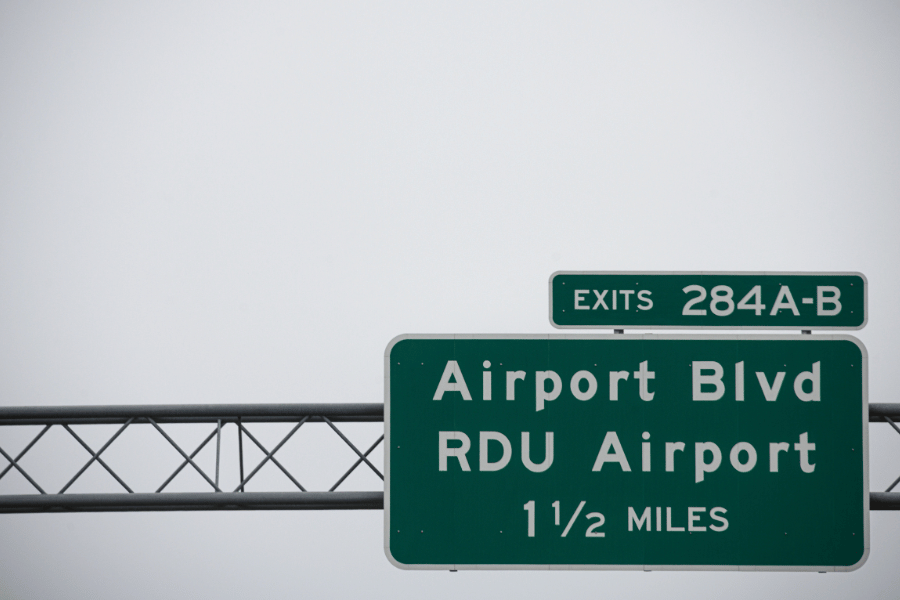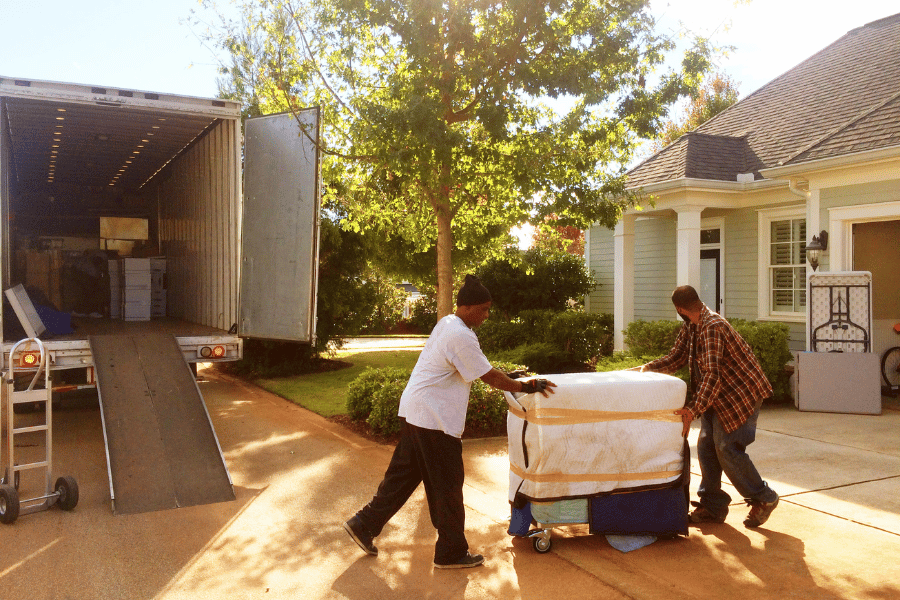Relocating To Another State
What are the most important things to think about when relocating? Consider these top ten things before moving to another state!
Deciding to relocate to another state is one of the most significant life choices you will ever make. Whether you are chasing career opportunities, seeking a better quality of life, or simply ready for a fresh start, an out-of-state move involves much more than packing boxes and hiring movers.
In 2025, the most common reason for a move is affordability. It was reported that 87% decided to relocate in search of a lower cost of living and more affordable housing. Regardless of your reasons for relocating to another state, it is a complex decision that will impact virtually every aspect of your daily life.
Since moving is a big commitment and a very stressful life event, it is important to make certain considerations before moving cross-country. Whether you are moving alone or as a family, researching and finding a state that fits your lifestyle and budget best is crucial.
The families who thrive in their new locations are those who do their homework, ask the right questions, and carefully evaluate how a potential move aligns with their personal and financial goals.
This comprehensive guide examines the ten critical factors you must consider before making your interstate move. While the excitement of exploring a new state is natural, understanding these elements will help ensure your relocation enhances your life rather than complicates it.
Whether you are searching for your dream home in Raleigh or elsewhere, let's dive into what you need to know to make an informed, confident decision about your next home state.
Consider these ten things before relocating
1. Cost of Living
When evaluating the cost of living, most people focus solely on housing costs, but the true financial impact of relocating extends far beyond your mortgage or rent. A comprehensive cost-of-living analysis should include groceries, utilities, insurance rates, childcare expenses, and everyday services.
Cost of living differences are why paying attention to the least and most affordable states is so important. Only moving to a state you can afford and researching the cost of living ahead of time will save you time and lots of money in the long run.
A state with lower housing costs might have significantly higher utility bills, insurance premiums, or grocery prices that offset those savings. In North Carolina, the affordable cost of living and housing costs are one of the main reasons many families, young professionals, and retirees are moving to the area, specifically to the Research Triangle.
Calculate what your current lifestyle would cost in your new state, including discretionary spending on dining out, entertainment, and hobbies, to get a realistic picture of how your financial situation will change. Do not forget to consider hidden costs, including higher HOA fees in certain regions or higher transportation costs in areas with limited public transit.
2. Housing Market
The housing market can vary dramatically from state to state and even between cities within the same state. Beyond simply comparing median home prices, you need to understand market dynamics.
Ask the following questions: Is it a buyer's or seller's market? What's the average time homes spend on the market? Are prices appreciating or stabilizing? These factors will affect both your ability to sell your current home and your purchasing power in your new location.
While March and June are typically the best times to buy a house due to low competition and competitive prices, overall, your financial decision should determine whether you are in a position to buy a home.
Since the housing market varies state by state, research beforehand to understand average housing prices and whether you can buy or need to save money for a house while renting. Research property tax rates in specific neighborhoods, as these can significantly impact your monthly housing costs and long-term affordability.
Investigate HOA rules and fees, which can be substantially higher in some states, particularly in planned communities or condominiums. Schedule virtual or in-person tours of multiple neighborhoods at different times of day to get a genuine feel for the communities where you're considering buying.

3. Job Opportunities
Even if you are transferring with your current employer or working remotely, understanding the local job market is crucial for long-term security and career growth. Research which industries are thriving in your target state and whether your profession has a strong presence there.
If your field is underrepresented, you may face limited opportunities for advancement or difficulty finding new employment if your current situation changes. Investigate the state's economic outlook and employment trends over the past five years.
If you are willing to move for work, you can find more opportunities at good companies. Many working professionals are choosing to move to Raleigh, for example, since it is part of Research Triangle Park and is home to more than 200 companies dedicated to research, development, technology, and life sciences.
Look at average salaries for your profession in the new location. Do not forget to examine commute patterns and average commute times, as what appears to be a geographically close job market might involve hours in traffic daily.

4. School System
If you relocate to a different state with school-aged children, the local school system and access to quality higher education opportunities are important considerations. Visit school websites, read recent parent reviews, and, if possible, schedule tours of schools in neighborhoods you are considering.
Pay attention to class sizes, extracurricular offerings, special education services, and gifted programs if relevant to your children's needs. Some states emphasize STEM education, while others have strong arts programs or career and technical education pathways.
Look into school choice options, including charter schools, magnet programs, and private school availability and affordability. For high school students, investigate graduation rates, college acceptance rates, and the availability of AP or IB programs.
The quality of the school district makes a big difference, and a good school can make the transition to a new area and the interruption of friendships easier. Moving to a state known for its good education system will ensure that your family will have only the best when it comes to learning.
Raleigh is part of the Wake County Public School System, the largest public school district in North Carolina. Home to a total of 191 schools and teaching over 161,000 students, the schools in Raleigh and the Triangle are known to be top-notch.

5. Weather and Climate
Weather might seem like a superficial consideration, but climate significantly impacts your daily life, home maintenance costs, and overall happiness. Beyond knowing whether you will experience four seasons or year-round warmth, consider the specific weather challenges of your target state.
Weather and climate can impact mood, lifestyle, utility bills, social plans, and overall quality of life. Before relocating to another state, be aware of what you are signing up for; otherwise, you might be miserable in your new home.
Research the frequency and severity of natural disasters in the area, including hurricanes, tornadoes, wildfires, earthquakes, and flooding. Beyond the immediate danger, these events can lead to evacuations, extended power outages, and significant property damage.
6. Healthcare
Healthcare accessibility and quality can vary significantly between states, and this becomes increasingly important as we age or if family members have chronic conditions. Research the availability of primary care physicians, specialists, and hospitals in your target area.
Investigate whether your current health insurance will be accepted in your new state, or if you'll need to find new providers and plans. Some insurance networks have limited coverage outside their home states, and changing plans can affect your out-of-pocket costs and continuity of care.
Look into the quality rankings of local hospitals and healthcare systems. Research prescription drug costs and pharmacy options, as prices can vary regionally, and some areas have limited pharmacy competition.
7. Transportation
Many people forget about transportation when relocating to another state. Will you need a car? Is there reliable public transportation? Figuring out how you will get around your new city is imperative.
In some metropolitan areas, you can live comfortably without a car, while in others, reliable personal transportation is essential. Research the public transit options in your specific neighborhood, not just the broader metro area, as accessibility can vary greatly within the same city.
Look into walkability scores for neighborhoods you're considering, as the ability to walk to grocery stores, restaurants, and services affects both convenience and health. Do not forget to also factor in vehicle-related costs, including insurance, registration fees, inspection requirements, and toll roads that might affect your daily commute.

8. Taxes
Tax structures vary enormously between states, and the differences can significantly impact your take-home income and long-term wealth building. While some states have no income tax, they often compensate with higher sales taxes, property taxes, or other fees.
The states of Alaska, Florida, Nevada, New Hampshire, South Dakota, Tennessee, Texas, Washington, and Wyoming do not have state income tax, which can help your personal finances. Alaska, Delaware, New Hampshire, Montana, and Oregon also do not have a statewide sales tax.
Look into sales tax rates, including both state and local portions, and what items are taxed or exempted, as some states tax groceries and clothing while others don't. For retirees or those nearing retirement, research how the state taxes Social Security benefits, pensions, IRA distributions, and other retirement income, as some states are considerably more tax-friendly for retirees.
9. Culture and Lifestyle
Cultural fit is often underestimated in relocation decisions, yet it profoundly affects your happiness and sense of belonging in a new place. Consider the overall culture and values of where you are considering living and whether they align with your own.
Research the arts and entertainment scene, including theaters, museums, music venues, and festivals that matter to you. Investigate the food culture, restaurant scene, and availability of diverse cuisines if that's important to your lifestyle.
Consider outdoor recreation opportunities such as beaches, mountains, lakes, hiking trails, and parks that align with your interests. Look into the social scene, sporting events, and organizations related to your interests and hobbies.
10. Community
Meeting new friends is hard, especially as an adult, and even more so if you move to another state. The best way to meet people is to put yourself out there and seek out opportunities, experiences, and activities where you can meet others with similar interests.
Research community organizations, places of worship, volunteer opportunities, and social groups that can help you build a new network. Some communities are particularly welcoming to newcomers and have organizations specifically designed to help new residents connect.
For parents, research childcare availability, costs, and quality, including daycare centers, preschools, and after-school programs, as these services can vary greatly in availability and affordability.
Strong community connections are often the difference between a relocation that feels isolating and one that becomes a thriving new chapter.

Methodology
We used data and information from multiple sources, including the U.S. Census Bureau, CBS News, SmartAsset, and Investopedia, to determine the top things to consider before relocating to another state.
FAQs
How to prepare for moving out of state?
Before moving out of state, make sure to say goodbye to friends and family, forward mail to your new address, make travel arrangements, and set up utilities and services in your new home.
How much money should you save before moving to another state?
Moving costs will depend on multiple factors, including the distance needed to travel and the cost of living in the state you are relocating to. On average, it is recommended to save at least two to three months of living expenses, as well as extra money for any unexpected expenses.
How do you know when it is time to move to another state?
It might be time to move to another state if you are searching for a better quality of life, need a lower cost of living, feel lonely where you are, or if there is little opportunity for growth in your current location.
Things To Consider When Relocating To Another State - Final Thoughts
Relocating to another state is both an exciting opportunity and a complex undertaking that deserves careful consideration and thorough research. While no location will be perfect in every category, understanding how each factor aligns with your priorities, values, and long-term goals will help you make a decision you can feel confident about.
Whether you are considering a move to the Raleigh area or relocating elsewhere, contact the experts at Raleigh Realty. We are here to provide expert guidance, local insights, and support throughout your relocation journey.
.png)



